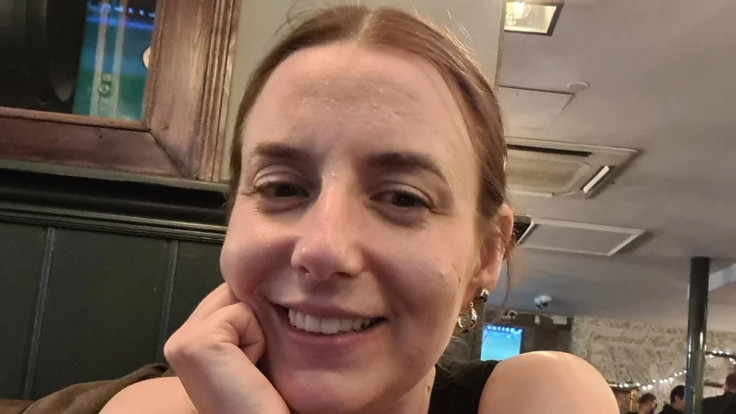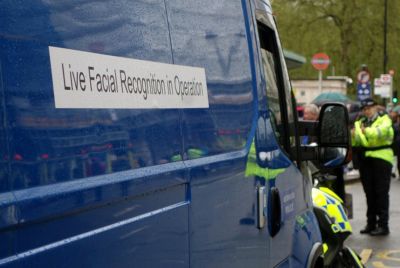Mum, 41, Found Dead in Travelodge After NHS Discharged Her Despite Struggle with Postpartum Psychosis
The inquest revealed a complex story of a mother's struggle and her family's difficult journey

A mother of a three-month-old was found dead in a hotel room, just a day after the NHS discharged her. She had been struggling with postpartum psychosis, a severe mental illness that affects women after childbirth.
Tragically, her death has raised serious questions about the care and support available for new mothers battling with their mental health.
A Desperate Battle with Postpartum Psychosis
An inquest has heard that Roisin Harron, a mother from south London, took her own life after being discharged from specialist mental health services. The tragic decision to release her came despite her continued struggle with postpartum psychosis, a severe illness she had suffered from since the birth of her son in 2017.
At 41, and with a history of depression, she began treatment at Bethlem Royal Hospital in Bromley in 2018. This was after experiencing a week-long episode of hypermania, a state characterised by unusually high mood and energy.
As part of her treatment, Harron was subject to multiple rounds of electroconvulsive therapy (ECT). During this procedure, a controlled electric current is passed through a patient's brain to induce a brief seizure.
According to NHS guidelines, ECT should only be used as a short-term treatment, with repeated sessions only recommended if the patient has previously responded well. However, a subsequent inquest into her death found it was 'impossible to underestimate the impact psychiatric medication had in Roisin's life.'
A Mother's Hope and A Daughter's Fear
The inquest also heard that following the treatment, Harron believed 'her brain was in some was irreversibly damaged.' Roisin's parents, Margaret McMahon and Henry Harron, shared their perspective with the South London Coroner's Court in Croydon.
'Roisin had been so unwell and such a risk to herself. But there had been much progress over the years,' they stated. 'But there had been much progress over the years.'
'She tried to help herself and seemed to want to do her best at the things that mattered to her—being a good mother, being good at her job and working hard on her relationships with family and friends.
'Prior to he illness, Roisin had an incredibly good memory but during her hospitalisation her memory became quite impaired.'
A Life of Medication and Treatment
Subsequently, Harron received a diagnosis of bipolar disorder, a mental health condition known for causing extreme shifts in mood, swinging from states of elevated energy to deep depressive lows.
To help manage her symptoms, doctors prescribed a mix of different medications, including both antipsychotics and lithium. Lithium is usually taken as a long-term treatment, often for a minimum of six months.
However, the inquest revealed that the 'trial and error' approach to finding a suitable treatment to manage Harron's symptoms was incredibly challenging. This process caused her a great deal of stress and anxiety.
A Family's Foreboding: The Decision to Discharge
In April 2023, Harron's care was transferred from the specialist mental health services at South London and Maudsley NHS Foundation Trust back to her general practitioner at Paxton Green Group Practice in London.
However, the family expressed their doubts at the inquest, stating they were not convinced their daughter was well enough to be discharged and manage her illness on her own without professional mental health support.
They said: 'It was clear that beneath the smiling and friendly face that Roisin presented to the world, there were very difficult struggles going on. There was still a deep and enduring depression and so many anxieties.'
They added: 'She put on a brave face, but she clearly missed having regular contacts that she had built up a good relationship with.'
Upon leaving the specialist services, Harron had to rely on local pharmacies for her medication. Her family explained to the inquest that many of these pharmacies experienced supply and distribution issues, which caused her significant anxiety and contributed to the tragic downturn that ultimately led to her death.
The 'Open Door' Debate: A Clash of Perspectives
In response, Dr. Aneesa Peer, a consultant psychiatrist at the South London and Maudsley trust, noted that Harron was in remission at the time of her discharge.
'When patients are dealing well and are stable for at least a year and they are on a good treatment regime they are considered for discharge,' she said.
Following this period, patients can return to the specialist services under a system that guarantees they'll be seen within four weeks, bypassing the longer waiting lists.
'Roisin was very astute around her medication and would advocate for herself very clearly and concisely. This is not someone who is waiting on support,' Dr Peer told the court. 'Patients come back to us all the time. The door is open. I am not sure how we could have intervened.'
The Human Cost of Treatment
Henry Harron, a retired social worker, told the court that the approach to his daughter's treatment felt 'too blase.' He emphasised that 'it was impossible to underestimate the impact' it had on her life.
On 17 June 2024, a little over a year after leaving the specialist services, Harron was discovered dead at the London Crystal Palace Travelodge. A post-mortem examination found that she had died from an overdose, with several prescription drugs present in her system.
Following the examination, Dr. Mihir Khan concluded that she died from a cardiac arrest brought on by an overdose. The assistant coroner, Victoria Webb, confirmed the cause of death as suicide and noted that Harron had had postpartum psychosis.
Understanding Postpartum Psychosis
Around one in every 1,000 women each year is affected by postpartum psychosis. This condition is distinct from the 'baby blues', a common experience for new mothers as they navigate the stress and hormonal changes of childbirth.
It is also different from postnatal depression, which impacts roughly one in 10 women. This condition can lead to feelings of helplessness, frequent crying, and a lack of interest in the baby.
Symptoms of postpartum psychosis generally appear within the first two weeks after childbirth. Common signs include manic moods, feelings of paranoia or fear, acting uncharacteristically, confusion, and restlessness, according to the Cleveland Clinic.
Little is known about postpartum psychosis, but the symptoms are unimaginably heartbreaking. Laura bravely shares her story with us in the first episode of #LosingIt : Our Mental Health Emergency tomorrow 10pm. pic.twitter.com/69Qs7OBahX
— Channel 4 (@Channel4) January 20, 2020
Exactly what triggers the illness remains largely unknown, and there is little evidence to suggest it's linked to a traumatic birth. According to the NHS, antidepressants may be prescribed to help ease the symptoms, along with antipsychotics and mood stabilisers, such as lithium.
Psychological therapies, such as cognitive behavioural therapy (CBT), can help patients learn to manage their thoughts and actions. In some rare cases, electroconvulsive therapy (ECT) may be used to treat severe depression or mania. The majority of women who receive proper treatment for postpartum psychosis go on to make a full recovery.
© Copyright IBTimes 2025. All rights reserved.






















